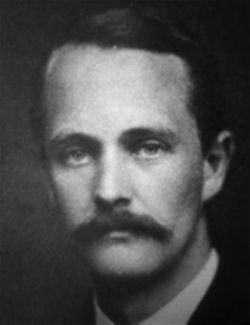There are here put in juxtaposition three versions in ballad-form of the same story, though fragmentary in the two latter cases, not only because each is good, but to show the possibilities of variation in a popular story. There is yet another ballad, Erlinton, printed by Sir Walter Scott in the Minstrelsy, embodying an almost identical tale. Earl Brand preserves most of the features of a very ancient story with more exactitude than any other traditional ballad. But in this case, as in too many others, we must turn to a Scandinavian ballad for the complete form of the story. A Danish ballad, Ribold and Guldborg, gives the fine tale thus:--
Ribold, a king's son, in love with Guldborg, offers to carry her away 'to a land where death and sorrow come not, where all the birds are cuckoos, where all the grass is leeks, where all the streams run with wine.' Guldborg is willing, but doubts whether she can escape the strict watch kept over her by her family and by her betrothed lover. Ribold disguises her in his armour and a cloak, and they ride away. On the moor they meet an earl, who asks, 'Whither away?' Ribold answers that he is taking his youngest sister from a cloister. This does not deceive the earl, nor does a bribe close his mouth; and Guldborg's father, learning that she is away with Ribold, rides with his sons in pursuit. Ribold bids Guldborg hold his horse, and prepares to fight; he tells her that, whatever may chance, she must not call on him by name. Ribold slays her father and some of her kin and six of her brothers; only her youngest brother is left: Guldborg cries, 'Ribold, spare him,' that he may carry tidings to her mother. Immediately Ribold receives a mortal wound. He ceases fighting, sheathes his sword, and says to her, 'Wilt thou go home to thy mother again, or wilt thou follow so sad a swain?' And she says she will follow him. In silence they ride on. 'Why art not thou merry as before?' asks Guldborg. And Ribold answers, 'Thy brother's sword has been in my heart.' They reach his house: he calls for one to take his horse, another to fetch a priest; for his brother shall have Guldborg. But she refuses. That night dies Ribold, and Guldborg slays herself and dies in his arms.
A second and even more dramatic ballad, Hildebrand and Hilde, tells a similar story.
The Child of Ell, in the Percy Folio, may have contained anything; but immediately we approach a point where comparison would be of interest, we meet an hiatus valde deflendus. Percy, in the Reliques, expanded the fragment here given to about five times the length.
THE CHILD OF ELL
(Fragment: from the Percy Folio)
1.
... ... ...
... ... ...
Sayes, 'Christ thee saue, good child of Ell,
Christ saue thee & thy steede!
2.
'My father sayes he will noe meate,
Nor his drinke shall doe him noe good,
Till he haue slaine the child of Ell,
& haue seene his hart's blood.'
3.
'I wold I were in my sadle sett,
& a mile out of the towne,
I did not care for your father
& all his merrymen.
4.
'I wold I were in my sadle sett
& a litle space him froe,
I did not care for your father
& all that long him to!'
5.
He leaned ore his saddle bow,
To kisse this lady good;
The teares that went them 2 betweene
Were blend water & blood.
6.
He sett himselfe on one good steed,
This lady on one palfray,
& sett his litle horne to his mouth,
& roundlie he rode away.
7.
He had not ridden past a mile,
A mile out of the towne,
Her father was readye with her 7 brether,
He said, 'Sett thou my daughter downe!
For it ill beseemes thee, thou false churles sonne,
To carry her forth of this towne!'
8.
'But lowd thou lyest, Sir Iohn the Knight,
Thou now doest lye of me;
A knight me gott, & a lady me bore;
Soe neuer did none by thee.
9.
'But light now downe, my lady gay,
Light downe & hold my horsse,
Whilest I & your father & your brether
Doe play vs at this crosse.
10.
'But light now downe, my owne trew loue,
& meeklye hold my steede,
Whilest your father [and your brether] bold
... ... ...
The Child Of Ell
Frank Sidgwick
Suggested Poems
Explore a curated selection of verses that share themes, styles, and emotional resonance with the poem you've just read.
